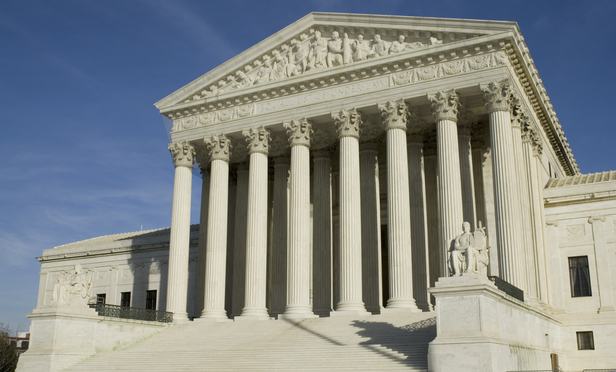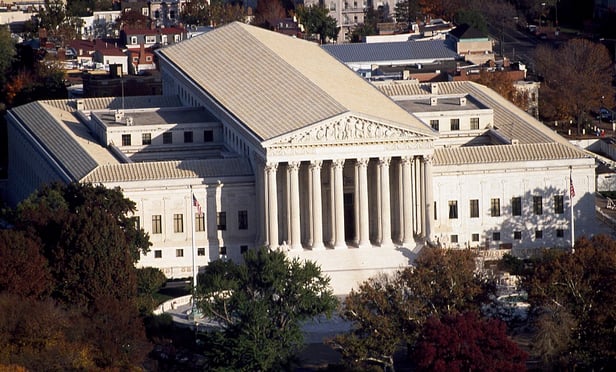Stephen A. Miller

April 04, 2017 | The Legal Intelligencer
US Supreme Court Explores Venue in Patent CasesPlaintiffs in patent-infringement cases enjoy tremendous discretion in selecting the venue in which they bring suit. The district that receives the most such cases—perhaps because of perceived plaintiff-friendly discovery rules—is the Eastern District of Texas.
By Stephen A. Miller and Matthew Coin
14 minute read

March 09, 2017 | The Legal Intelligencer
Supreme Court Considers Cross-Border Jurisdictional IssuesAt a recent oral argument, Justice Elena Kagan described the U.S.-Mexico border as a jurisdictional "no-man's land." The Supreme Court confronted those jurisdictional limits in Hernández v. Mesa, a case arising from the fatal shooting of a Mexican teenager (Sergio Hernández) by a U.S. border patrol agent; the American officer shot from a position in the United States and wounded Hernández at a location across the border in Mexico.
By Stephen A. Miller and William A. Lesser
10 minute read

February 08, 2017 | The Legal Intelligencer
High Court Examines Forfeiture in Drug ConspiraciesThe federal criminal forfeiture statute, 21 U.S.C. Section 853(a), provides that any person convicted of a federal drug crime must forfeit "any property constituting, or derived from, any proceeds the person obtained, directly or indirectly, as the result of such violation." In Honeycutt v. United States, the U.S. Supreme Court will determine the reach of that statute in drug conspiracy cases. Specifically, the court will examine whether the statute requires all members of the conspiracy to be held jointly and severally liable for the forfeiture of all reasonably foreseeable proceeds of the conspiracy—even a co-conspirator that never personally "obtained" any proceeds.
By Stephen A. Miller and Haryle Kaldis
11 minute read

January 11, 2017 | The Legal Intelligencer
Supreme Court Confronts Racial Bias in Jury DeliberationsA brief survey of news and social media confirms a rather obvious proposition: The citizens of our nation harbor deep biases. Some of those are innocuous and help us navigate the world. Others are more pernicious, and our legal system exists in no small part to neutralize the impact of those impermissible biases. In Peña Rodriguez v. Colorado, the U.S. Supreme Court is grappling with the issue of racial bias in the decision-making of a criminal trial jury.
By Stephen A. Miller and Kathryn Young Galla
11 minute read

December 07, 2016 | The Legal Intelligencer
Church-State Issues Return to the U.S. Supreme CourtImagine that a church in your neighborhood caught fire. Could anyone seriously argue that it would violate the Establishment Clause to allow city firefighters to fight the blaze? Would it, in fact, violate the Free Exercise and Equal Protection Clauses not to offer such assistance simply because the burning building in question was a church? That is the powerful analogy employed by a Missouri church—which luckily was not engulfed in flames—in a case to be heard by the Supreme Court in the coming months.
By Stephen A. Miller and Leigh Ann Benson
8 minute read

November 09, 2016 | The Legal Intelligencer
High Court Considers When a Stock Tip Becomes Insider TradingThe Supreme Court heard oral argument last month in Salman v. United States, a case that requires the court to define the scope of the federal insider-trading law. Under the court's prior precedent, a stock tip becomes "insider trading" if an insider personally benefitted by providing information to another. But what sort, and how much, "personal benefit" must be shown? The government, seeking enlargement of the statute's scope, argues that an individual benefits personally by improving the relationship with her friends or family—in other words, an abstract benefit. By contrast, defense counsel in Salman maintains that an individual benefits only when she receives a tangible, quid pro quo benefit in return.
By Stephen A. Miller and Nicholas A. Karwacki
11 minute read

October 12, 2016 | The Legal Intelligencer
Supreme Court to Revisit Class Certification IssuesIn class-action lawsuits, the trial court's decision on class certification often determines the ultimate outcome of the case. A denial of class certification can effectively end the case, because it is cost-prohibitive to litigate the claims individually. Conversely, the certification of a class drastically increases a defendant's potential liability and litigation costs, thereby motivating defendants to settle in order to mitigate that risk.
By Stephen A. Miller and Jeffrey M. Monhait
11 minute read

September 16, 2016 | The Legal Intelligencer
Preview of the Supreme Court's October Term 2016The Supreme Court will limp back into action in a few weeks. The atmosphere around the court's current term is decidedly unsettled—there are no blockbuster cases (yet) on the docket, the Senate continues to refuse to allow the court to operate at full strength, and we are only a few months removed from a presidential candidate openly calling on a justice to step down from the court. Perhaps it is understandable, then, that the court is filling its docket in a cautious manner.
By Stephen A. Miller
10 minute read

April 26, 2016 | The Legal Intelligencer
Supreme Court Considers Constitutionality of Body SearchesPolice officers often ask drivers suspected of drunken driving to submit to a Breathalyzer test. In Minnesota and 12 other states, however, a driver's refusal to submit to that test is an independent criminal offense. The U.S. Supreme Court is set to decide this spring whether those laws violate the Fourth Amendment by depriving individuals of their right to be protected from unlawful searches and seizures.
By Stephen A. Miller and Leigh Ann Benson
12 minute read

April 14, 2016 | The Legal Intelligencer
Supreme Court Reconsiders Affirmative Action in Higher EducationThe use of racial preferences in college admissions has bedeviled the U.S. Supreme Court for nearly 40 years. And the court's latest case presenting this difficult issue is a repeat customer.
By Stephen A. Miller and Alexa L. Sebia
11 minute read
Trending Stories
- 1Gen AI and Associate Legal Writing: Davis Wright Tremaine's New Training Model
- 2Departing Attorneys Sue Their Former Law Firm
- 3Pa. High Court: Concrete Proof Not Needed to Weigh Grounds for Preliminary Injunction Order
- 4'Something Else Is Coming': DOGE Established, but With Limited Scope
- 5Polsinelli Picks Up Corporate Health Care Partner From Greenberg Traurig in LA



